Kevin Clarke
Operetta Research Center
18 November, 2018
Just out is a large-size almost catalogue-like publication in English, French and German in the Revue Musicorum series, no. 20/2018. It’s dedicated to “La comédie musicale britannique XIXème et XXème siècle,” in other words it deals with musical comedy in and from Britain in the 19th and 20th century. And this includes – luckily – operetta. Lots of it. The editors are Albert Gier and Pierre Degott, and they’ve managed to pull together 14 new essays by prestigious authors such as Marion Linhardt, Kurt Gänzl, and Mr. Gier himself.
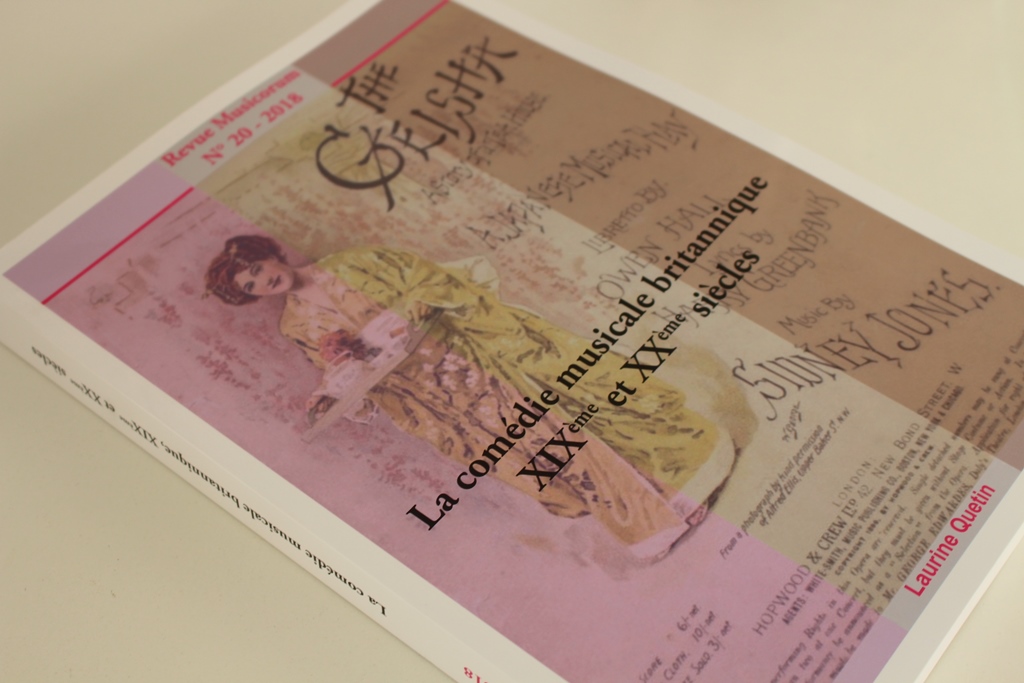
“La comédie musicale britannique XIXème et XXème siècle” in the series Revue Musicorum no. 20 / 2018.
The texts are divided into three sections. The first is headlined “De Planché à G&S: les fondements du genre,” i.e. it examines the basis of the genre musical comedy. Here, Miss Linhardt discusses the extravaganzas of James Robinson Planché, while Mr. Gänzl unveils the story of various British Blondes in “The Blondes who never dyed” (it’s an article we will have available online here on the ORCA site soon). Joël Richard looks at ‘mock pirates and musical piracy’ in an essay on The Pirates of Penzance, while Meinhard Saremba talks about Arthur Sullivan’s ‘Original Light English Opera’ Haddon Hall. (Recently revived by the National G & S Company and reviewed on ORCA by John Groves.)
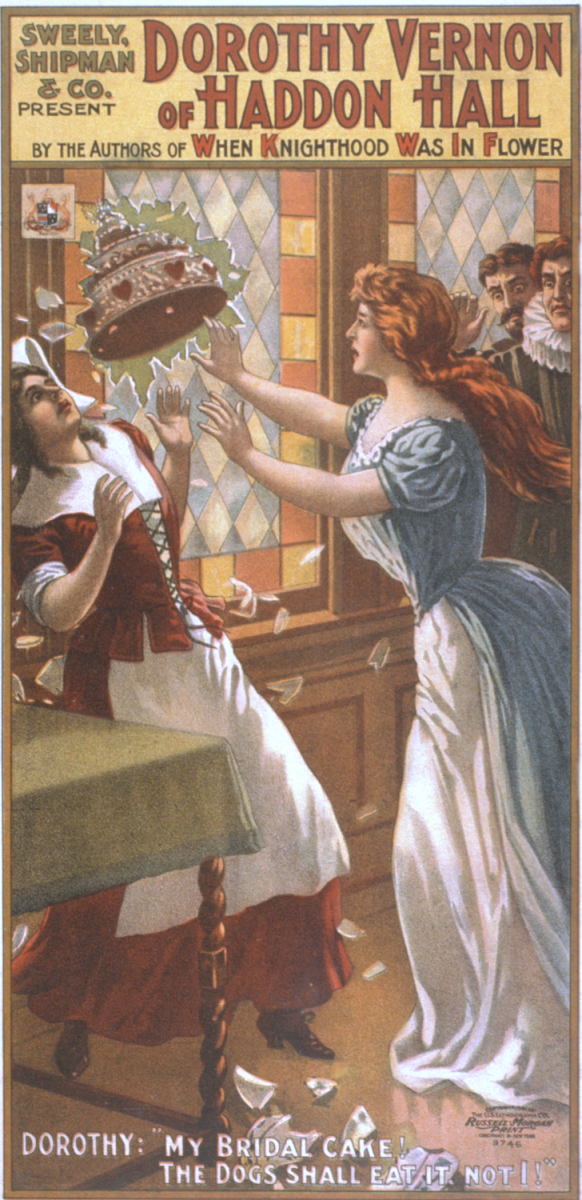
1906 production of “Dorothy Vernon of Haddon Hall.”
Then, there is “De l’ère post-victorienne au modernism: développements génériques.” Vincent Giroud discusses ‘Orient et Occident’ in The Geisha by Sidney Jones, while Lisa Evertz looks at ‘exotic escapism’ in The Geisha (1896), The Arcadians (1909) and The Mousmé (1911). Noël Coward is honored with an expansive essay by Mr. Gier, in German, subtitled ‘His Divas and the Operettas.’ Pierre Longuenesse examines “Le Modernisme théâtral en Angleterre: Auden / Murril / Doone et la creation de The Dance of Death.”

Actor and author Noël Coward, in the 1930s.
In the last section, we learn about “De l’après-guerre à aujourd’hui: popularité, modernité et nouvelles perpectives.” There’s Gilles Courdere analyzing My Fair Lady as ‘un conte de fees très British pour Broadway,’ before Jean-Philippe Heberlé moved onto Andrew Lloyd Webber and Jesus Christ Superstar. Dorota Babilas looks at the ‘Musical Adapartions of Gaston Leroux’s Novel’ Le Fantôme and traces the history to Lord Webber’s Phantom of the Opera. After Danièle Berton-Charrière asks whether The Steamie by Tobny Roper really is ‘une comédie musicale,’ Laurence Le Diagon-Jacquin closes the book with an essay on Billy Elliot, the live experience and stage musical.
This collection of essays is clearly a labor of love, it’s been published by Laurine Quetin in October 2018 in an edition of 100 (!) copies. How you can order them, and how much you have to pay for one is not exactly clear if you are not already a subscriber to the series. This website suggests you could simply write to Laurine Quetin for further information.
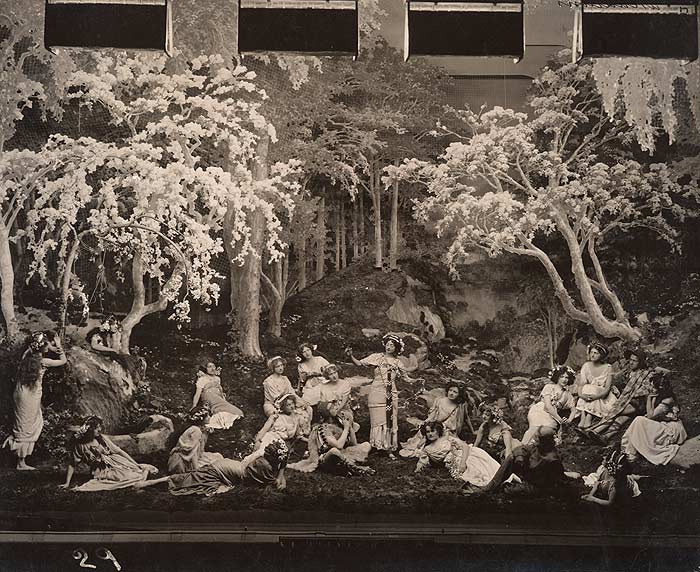
“The Arcadians” in a 1909 staging.
All essays, no matter which language they are in, have an English abstract at the end, so you’ll get the gist of it, even if you are not fluent in all three languages. Personally, I very much regret that Mr. Giroud’s Geisha essay is in French; at least Miss Evertz Geisha-Arcadians-Mousmé text is in German. But just because that’s easier for me to read doesn’t mean that it makes it more accessible for others. It’s one of the central problems of modern operetta research, that many people in the English speaking world do not take note of German or French (or other) publications while German and Austrian researchers often ignore Anglo-American publications. A shocking example of this is the brand new Der populäre Pakt by Ethel Matala de Mazza: authors such as Gänzl, Richard C. Norton, Richard Traubner, Gerald Bordman et al are simply ignored, completely.
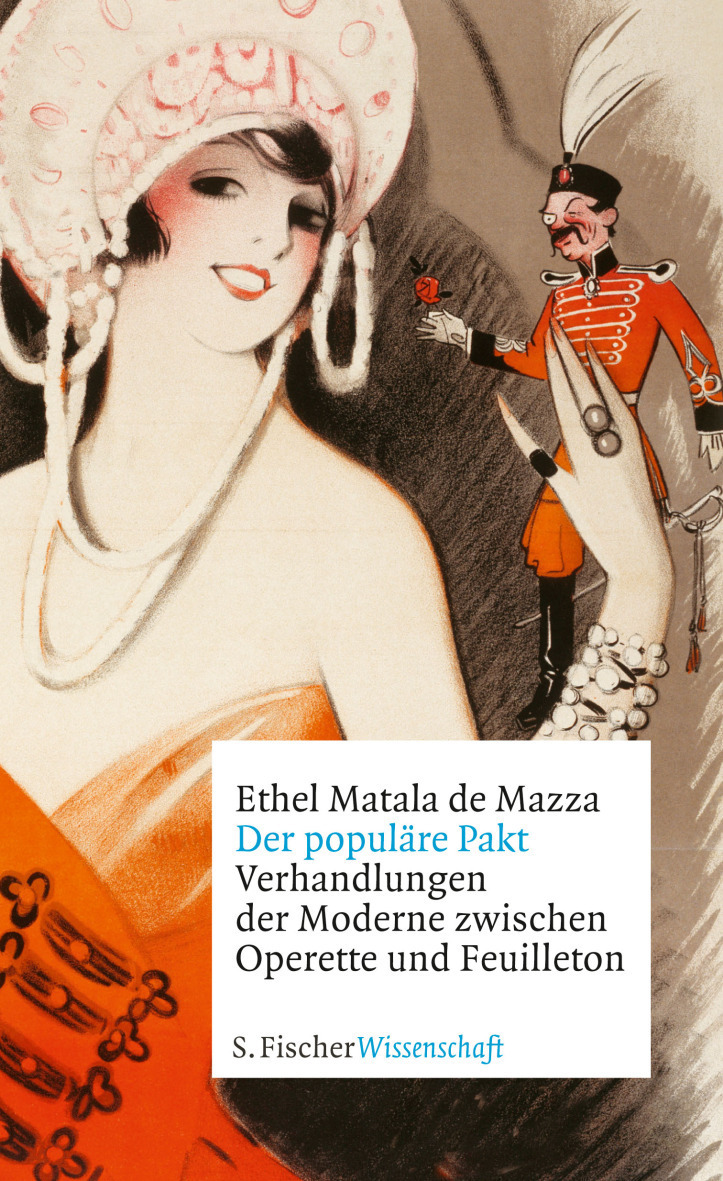
The cover of Ethel Matala de Mazza’s “Der populäre Pakt: Verhandlungen der Moderne zwischen Operette und Feuilleton,” S. Fischer Verlag 2018.
On the other hand, the Matala de Mazza book is elegantly packaged and easily available for 25 Euros via S. Fischer publishing, while La comédie musicale britannique XIXème et XXème siècle is a lot harder to track down. But it’s worth the effort. And it’s almost touching to see the passion that went into making this publication. So it definitely gets three cheers from me – and of course I adore the British Blondes story. Admittedly, it’s been told before, but this is a new version focusing on the ‘Big Four’ which here are only three, because Lydia Thompson is mentioned only in passing. Instead you get the extensive account of the careers of Pauline Markham, Lisa Weber (‘Queen for a day’), and Ada Harland. With photos. And all the juicy details. Need I say more?
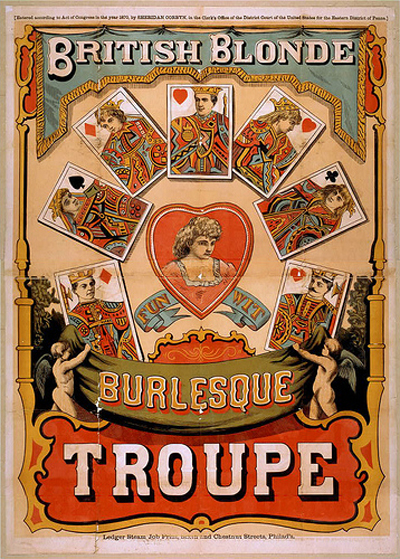
Advertisment for the British Blondes burlesque troupe.
For more information about the Revue Musicorum click here. To contact Laurine Quetin and find out about odering the book, write to laurine.quetin[@]orange.fr.
